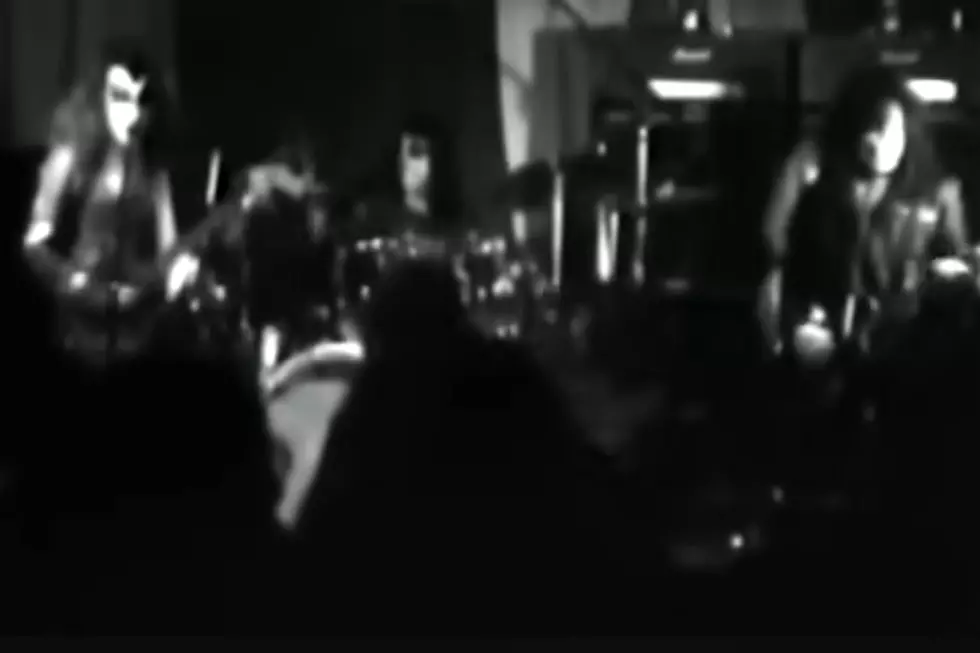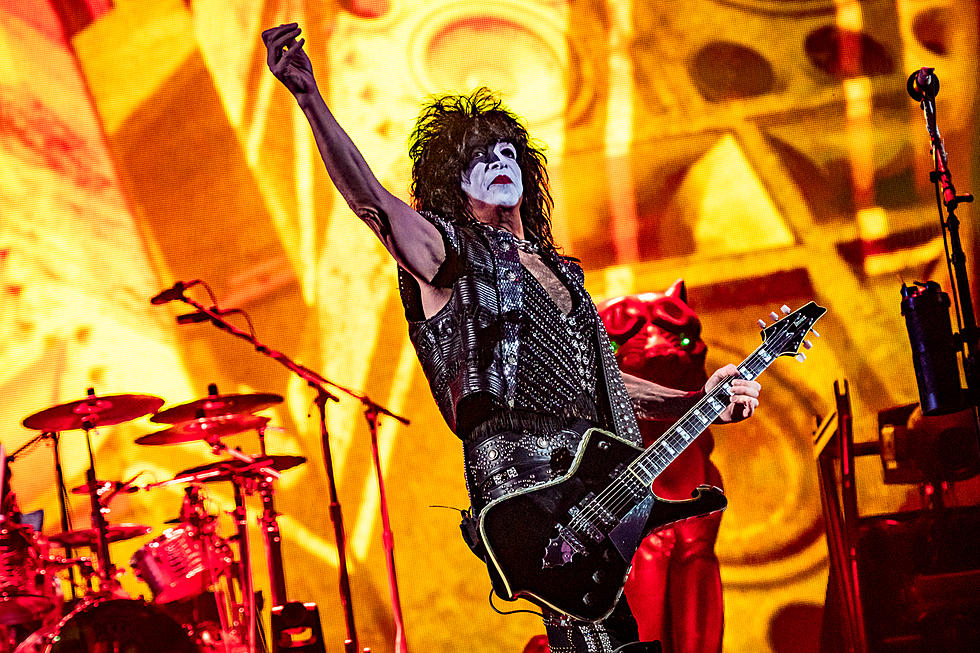
50 Years Ago: Kiss Plays Their First Concert
Fewer than 10 people witnessed the first live performances by Kiss on Jan. 30, 1973, at the Popcorn Club in Queens, N.Y. According to bassist Gene Simmons, the group earned a whopping $50 for performing two sets that evening.
Despite their inauspicious beginnings, though, all four members of the band knew they had that rare spark that would elevate them from dingy clubs to sold-out arenas in a few years' time.
Simmons and guitarist / co-frontman Paul Stanley had recently left their previous band, Wicked Lester, recruiting drummer Peter Criss and lead guitarist Ace Frehley for their new group. Their goal, Simmons has repeatedly explained, was to "put together the band we never saw onstage."
After their first manager quit, declaring the new band's music "the worst crap he ever heard," Simmons took over. He cold-called the Popcorn Club (which was soon to be renamed the Coventry), convincing them to hire the band for a three-night stand for $150.
"We gave our picture to the club, and by this time we had decided to be reborn as Kiss, thanks in part to Epic's decision to drop Wicked Lester," Simmons recalled in his memoir Kiss and Make-Up. "I remember very clearly when our picture went up on the outside of this club, Ace took a marker and wrote our new name right on the picture. The way he drew it was pretty crude, but it resembled our logo, with the two S's like lightning bolts at the end of the word. It didn't make much difference for the show, which had a crowd of maybe three people: Peter's wife, Lydia, a girl named Jan who I was seeing, and Jan's friend."
The band's trademark face paint and costumes were still in their embryonic phase; in his memoir Makeup to Breakup: My Life In and Out of Kiss, Criss recalled wearing "a long-sleeved spidery black shirt with studs going down the chest, black studded cut-offs that my mom had sewn, and a scarf," along with green Hush Puppies that his mother had soaked in glue and coated with silver sparkle. But those first shows featured many of the songs on which Kiss would build their reputation in the coming years, including "Deuce," "Black Diamond” and "Watchin' You.”
Watch Kiss Perform 'Deuce' in 1973
By their own admission, Kiss' live debut was hardly the stuff of rock legend. Frehley, in his memoir No Regrets, remembered "stand[ing] up there alongside Paul and Gene, the three of us jockeying for space on the stage, unsure how to move or where to position ourselves, and thus sometimes crashing into one another or wrapping our legs around each other until we looked like some multi-headed hard rock serpent. And I could laugh at the absurdity of it all, even as I looked out over the 'crowd' and spotted not a single unfamiliar face. A few of our family members and girlfriends, and that’s about it. A lesser band might have been humiliated to the point of quitting, but we weren't deterred in the slightest."
"We played like the place was packed, and afterward I realized that this band was the band," Criss recalled. "I was so proud of the guys. We were all drenched in sweat, and we had given the performance of our lives for four people."
That's not to say they didn't have constructive criticism for each other. “I had always wanted a big sound, a two-guitar steamroller. Like Humble Pie. And we had achieved elements of that," Stanley said of Kiss' first shows in his memoir Face the Music: A Life Exposed. "But at the same time, we lacked a sense of heft, of magnitude. I almost felt as if the other guys had jeopardized the band — they acted small-time. Ace had babbled into the mic during one of the shows. Peter had said, 'I want to thank my friends from Canarsie for coming out tonight.' That did not sound big league. It detracted from the image I wanted to project.
"Perception was reality," the singer and guitarist continued. "I realized there were three guys on that stage in Queens who were clueless about how to relate to an audience. You want to be small-time? Give a shout-out to Tony and Guido. You want to be huge? Make the right impression, no matter how many people are there. Interact with the audience as if you're all at Madison Square Garden."
Stanley's intuition proved correct, and within four years, Kiss would be headlining Madison Square Garden and other packed arenas around the world off the strength of several platinum albums and hit singles. Lineup changes, substance abuse and shifting musical trends all threatened to derail the band over the next half-century, but through it all, Kiss clung to their mantra: Play every show like it was the last — and biggest — of their career.
Kiss Albums Ranked Worst to Best
More From Ultimate Classic Rock









